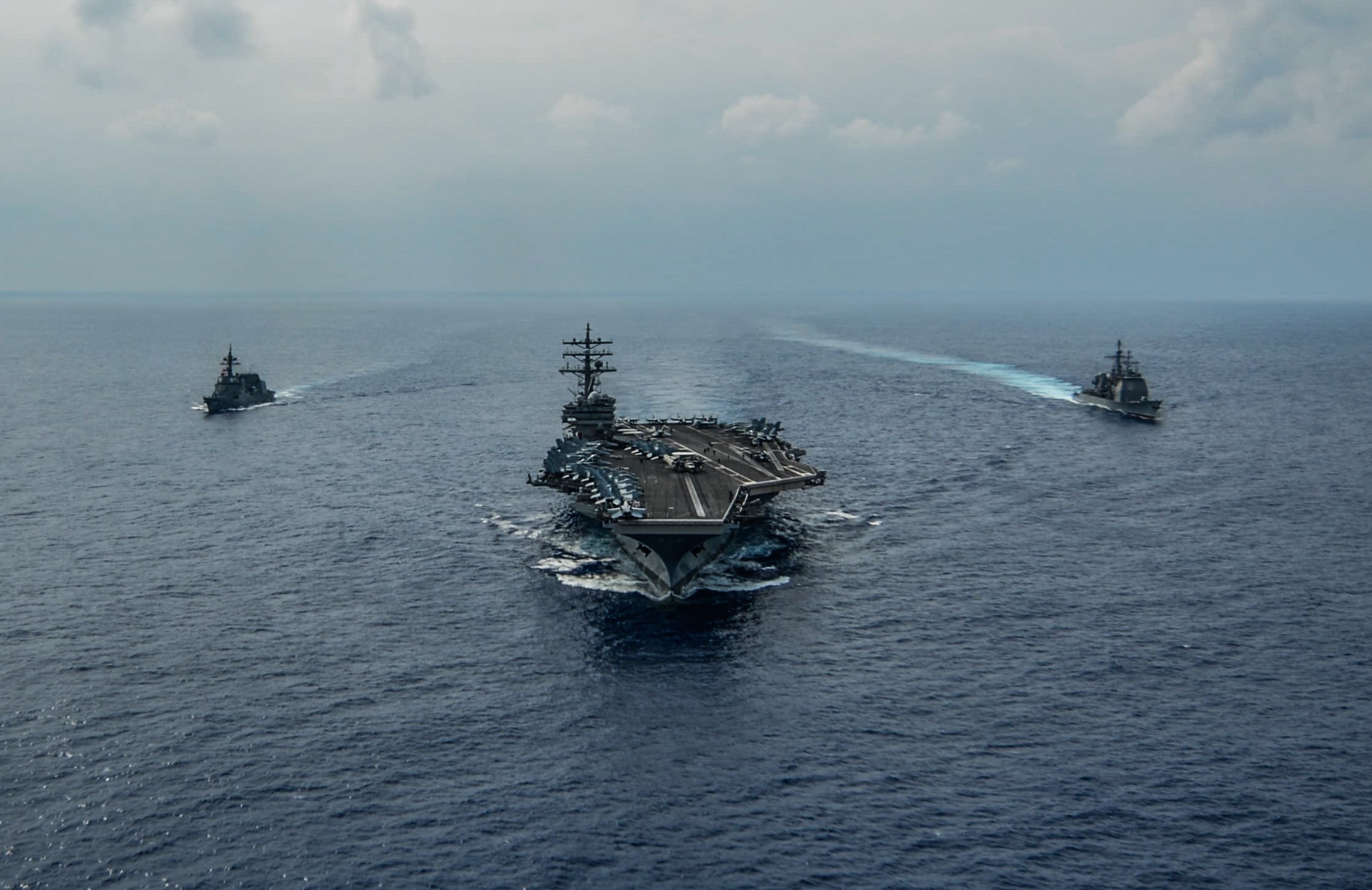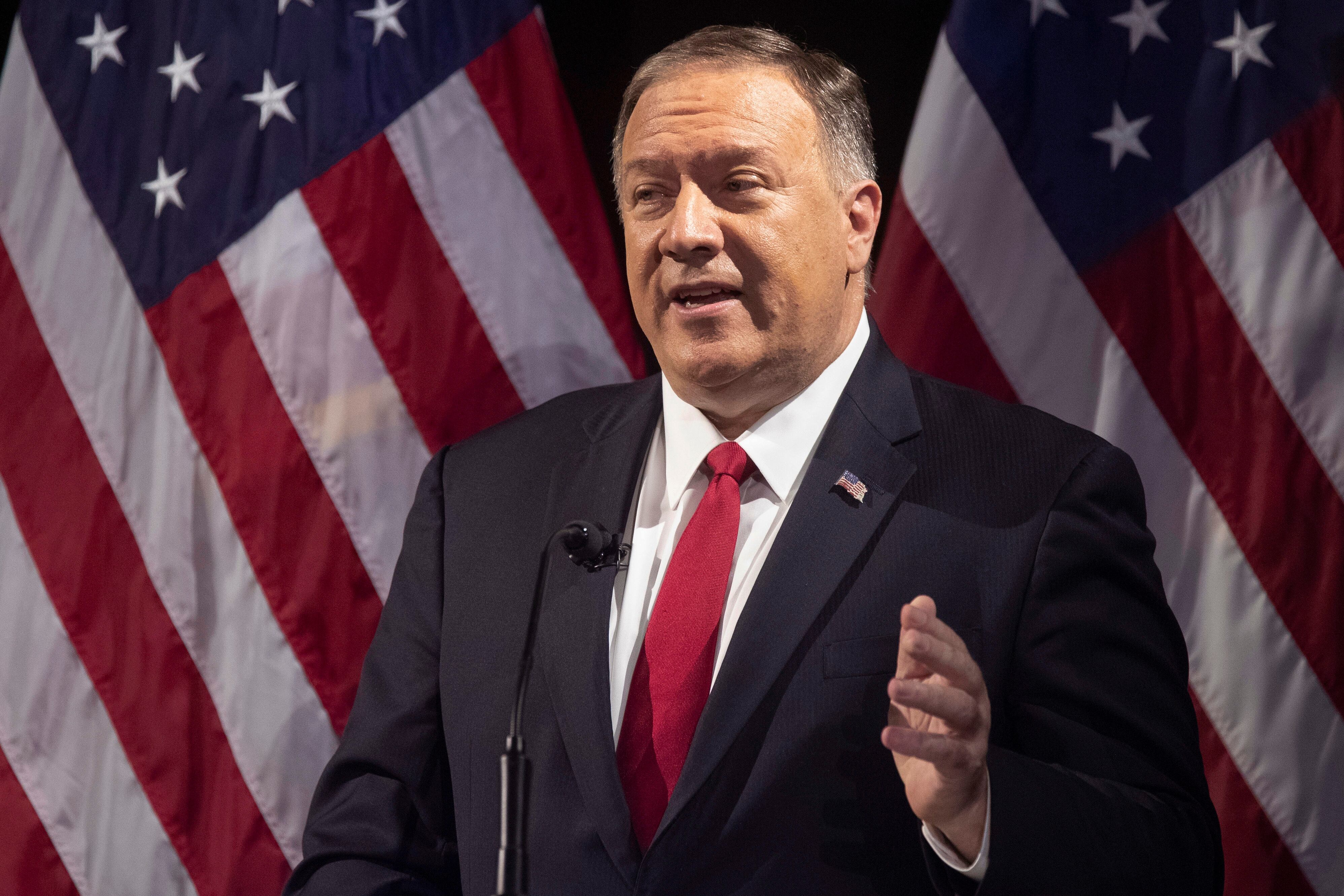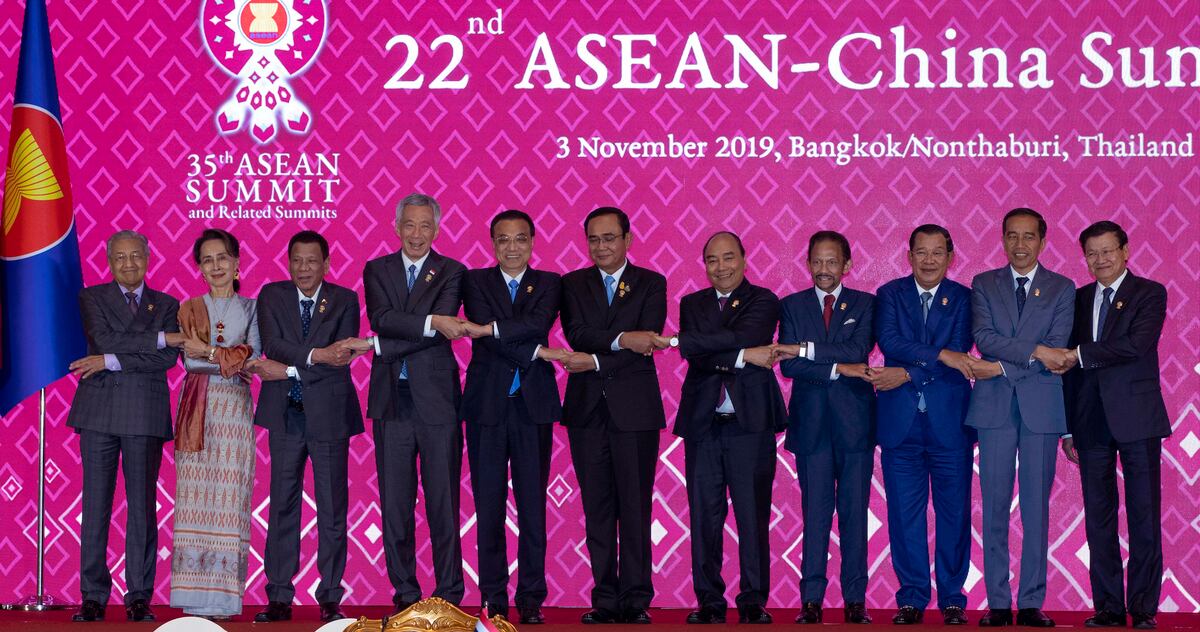BEIJING — Here’s your weekly look at recent developments in the South China Sea, where China is pitted against smaller neighbors in multiple territorial disputes over islands, coral reefs and lagoons. The waters are a major shipping route for global commerce and are rich in fish and possible oil and gas reserves.
CHINA URGES CONFLICT AVOIDANCE
Chinese Premier Li Keqiang is renewing a call for progress toward a code of conduct among South China Sea disputants, despite long delays and skepticism from the United States.
The official Xinhua News Agency quoted Li as saying Sunday that he "hopes all sides will actively carry forward consultations" on the agreement.
Li called on the parties to "uphold peace, friendship, and cooperation in the South China Sea and safeguard lasting peace, stability in the region," Xinhua said.
Li was addressing an expanded gathering of the Association of Southeast Asian Nations at the group’s annual summit.
The 10-member regional bloc has struggled to find build a unified approach to dealing with China’s claim to sovereignty over virtually the entire strategic waterway.
While China has pushed for an agreement to regulate behavior in the region, it has taken an unbending approach to its territorial claims, backed up by the construction of military installations on man-made islands.
A top U.S. diplomat last month expressed skepticism about China's sincerity in negotiating a code of conduct, saying it was seeking to reorder the region in its favor.

US, JAPAN BOOST FORCE INTEGRATION
The U.S. Navy‘s Ronald Reagan Carrier Strike Group joined with Japanese ships in exercises aimed at boosting the two navies’ ability to jointly deal with security threats in the Asia-Pacific region.
No exact location was given for the Oct. 24-Nov. 2 drills, but the treaty partners have increasingly focused on ensuring freedom of navigation in the South China Sea and other waters through which crucial trade travels.
That has irked Beijing, which resents the presence of the U.S. Navy in the region and even more that of Japanese ships due to lingering historical animosity.
Navy Times editor’s note: Officials indicated Friday the maneuvers took place in the Philippine Sea.
Such exercises enable “both navies to continue to strengthen the unique and seamless integration of our forces,” Capt. Steve H. DeMoss, commander of Destroyer Squadron 15, said in a news release from the U.S. 7th Fleet.
The exercises included the exchange of officers to coordinate maneuvering operations, along with "tactical battle exercises," the release said.
The ongoing series of drills "contribute to enhanced tactical skills and interoperability with each other," Capt. Kimihiro Ichiyanagi, commander of the Japanese navy's Escort Division 12, was quoted as saying.

POMPEO LASHES OUT AT CHINA
U.S. Secretary of State Mike Pompeo has lashed out at China, accusing the ruling Communist Party of adopting hostile policies that run counter to U.S. interests.
Pompeo's remarks Wednesday come as China and the U.S. try to finalize a partial trade deal.
Pompeo said China must be confronted rather than coddled on numerous fronts, including its trade practices, its human rights record and its assertiveness in the South China Sea and toward Taiwan.
"We did everything we could to accommodate China's rise, in the hope that Communist China would become more free, market-driven and, ultimately, democratic," he said in his speech to the conservative Hudson Institute in New York.
Pompeo said the Trump administration would aggressively call out China for its actions, particularly on economic issues but also on the security front.
Pompeo repeated previous criticism of predatory Chinese lending and infrastructure investment in developing nations, theft of intellectual property, its restrictions on religious freedom and its buildup of military assets in the South and East China seas.
RELATED

EU URGES CHINA TO TALK
The European Union says differences with China over the South China Sea should "not be ignored and should be dealt with in a candid way."
The statement came following the first EU-China Experts' Seminar on Maritime Security, held in the southern Chinese island province of Hainan.
The seminar held Wednesday and Thursday brought together 40 experts and officials from the two sides and touched on "regional cooperation in maritime security, international ocean governance, and protection of critical maritime infrastructure," the EU said in a news release.
The meeting highlights EU concerns about disruptions to global trade resulting from conflicts in the South China Sea, through which passes an estimated $5 trillion in global commerce annually.
In opening remarks, EU Ambassador to China Nicolas Chapuis "stressed the need to deepen the dialogue and engagement between the EU and China," the EU said.
“The cooperation should be based on positive elements, however the differences should not be ignored and should be dealt with in a candid way,” Chapuis said.





